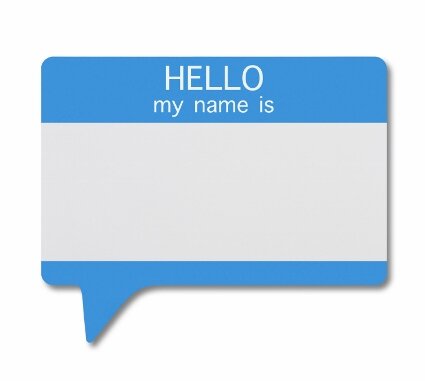 We are sons, daughters, teachers, students, mothers, fathers, lovers, geeks, people of color, introverts, extroverts, wives, husbands. We are also queers, pervs, kinksters, sluts, butches, femmes, sissies, sadists, masochists, dominants, submissives, masters, mistresses, slaves, puppies, ponies. But what does that mean?
We are sons, daughters, teachers, students, mothers, fathers, lovers, geeks, people of color, introverts, extroverts, wives, husbands. We are also queers, pervs, kinksters, sluts, butches, femmes, sissies, sadists, masochists, dominants, submissives, masters, mistresses, slaves, puppies, ponies. But what does that mean?
As I began exploring the labels we use, both within our community and at-large, several questions arose. Why do we use labels? What do they do? Why do they cause such problems?
In many, if not most, cultures, one of the first things that happens to us in life is that we are given a name. There are various traditions around this from naming after a loved one to using specific letters in the name. But the naming is almost given great importance. People often mark great life-changes such as marriage or converting to a new religion by changing their names. All of this to say, what we call ourselves is generally a most fundamental part of how we see and mark our place in the world.
For many of us, realizing or evolving our kinky, queer, genderqueer, and so on selves is a major shift in our perspective on our own identity. So it follows that we often require a new label for ourselves.
Labels, like any common language, are helpful for the purpose of discussion. How do you have a conversation about an apple if you can’t call it an apple? Knowing what to call something (or someone) makes us think we know what it is.
The problem, the first one, is just that; it only makes us think we know what it is. Labels too often become not a starting point, but an ending point for discussion. I know what an apple is, so why would I question that? The label gets used as a substitute for the definition.
The second problem is that like most language, labels don’t mean the exact same thing in different people’s minds. Couple that with the first problem, and it gets severely compounded. Not only are we not discussing things because we already have a fixed idea of what the label means, but that fixed idea doesn’t mean the same thing to the people not discussing them!
Another large problem is that often we don’t even get the opportunity to choose our labels ourselves. We get branded by other people.
I’m a girl. Female-born, female-identified. I identify as a lot of things: woman, daughter, friend, sister, Black, heteroflexible (I used to call myself bisexual from the waist up), kinkster, slut (in a good way), switch, administrator. But I’ve also been called bitch, baby, weak, slut (in a bad way), straight, heteronormative – none of which I accept (ok, occasionally bitch). Does that mean those labels don’t apply to me? I like to think they don’t, but is it up to me? If I label myself a flower-pot, does that make it so? If someone else labels me a flower-pot, does that make it so? What happens when my labels for myself are in conflict with someone else’s labels for me?
Clearly, I have more questions than answers or even observations. I will be returning to this topic over the next couple months, including others’ ideas on the subject as well.
What do you think? What do you call yourself and why? What are your observations on labels?
Originally posted August 29, 2010

For me, labels define more what I do than who I am these days. I label as service top at the club where I do violet wand scenes. I label as a rope slut when talking about my love for and experience with rope. I label as a pain slut when I talk about physically intense scenes. Submissive is the label I use most often, because it is the word I associate most closely with my kinky nature. As you noted, though, words mean different things to different people, and my submissive nature manifests in different ways with my different partners. I often find myself explaining these differences, the word is not a simple definition, but a starting place for discussion.